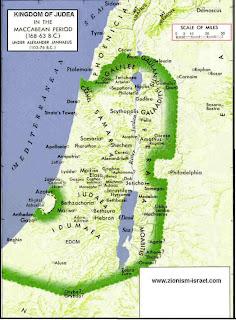Royal Priesthood, Holy Nation Acts
1:8
Power: Dynamite or Dynamo?
by
Robert T. Cooper
When most
preachers speak on Acts 1:8, they will mention that the word for “power” is dunamin. Then most preachers will
mention that this is the word from which we get our modern English word, “dynamite.”
Some preachers are quite comfortable with this comparison. In their minds, the
Holy Spirit gave the first believers an explosive power that resulted in the
spread of the Gospel across the known world in one generation.
Other
preachers are quite uncomfortable comparing Holy Spirit power to dynamite.
These preachers find dynamite to have a bad connotation. They find it a symbol
of destruction. One might say that in many places the Gospel destroyed the old
worldview and the old way of living. It destroyed idolatry and false religion.
It was destructive to immorality. But that seems to be grasping at straws in
order to hang onto an analogy that does not quite work.
With the
construction of modern turbines and electric-generation facilities, a better
choice of a modern term might be “dynamo.” When one reconsiders the spread of
the Gospel during the years immediately following Pentecost, the Gospel did not
exactly explode across the known world. The year in which Pentecost occurred,
it is not apparent that any of the new disciples left Jerusalem for several
months. When they finally did leave, it was because of the persecution
instigated by Saul of Tarsus. At that time, while Luke doesn’t report foreign
disciples finally returning to their homes, most must have done so. But the
domestic disciples didn’t scatter far, perhaps in a radius of 100 – 200 miles.
And still the Apostles were hanging back in Jerusalem.
No, the spread
of the Gospel in that first generation was more like a dynamo than like
dynamite. It may have taken a couple of decades, but the Gospel did make it
from England to Ethiopia, from Iberia to India, and perhaps beyond.
Still, what
the verse says has more to do with the manner in which the Holy Spirit will
empower disciples than with the speed of the spread of the Gospel. The witness
of the disciples would be empowered.
Which brings
us to the crucial questions. Why is it that in our sight there are only a few
people whose witness appears to be empowered by the Holy Spirit? Should we not
expect the witness of every disciple, indwelt by the Holy Spirit, to be
empowered? Shouldn’t my witness be
empowered?
The first
couple of decades of my Christian witness, I considered myself to be a 30-fold
disciple. In Jesus’ parable of the Sower and the Seed, the seed sown on good
soil produces crops, some 30-fold, some 60-fold, and some 100-fold. I figured
that over the course of my life, if the Lord blessed, perhaps 30 people might
come to a saving knowledge of our Lord and Savior Jesus Christ. But then a few
years ago I found myself in a situation in which there were several people
coming to faith. It seemed to me that the Lord had blessed that I might be a
60-fold disciple. I am so grateful for what the Lord has done, and I give Him
all the credit, all the glory.
What about
you? If you are only a 30-fold disciple, that is still a witness empowered by
the Holy Spirit. Face it! There is no getting out of it! You and I might not be
100-fold disciples, but our witness is still dynamic; the message of salvation
is still spreading. Perhaps it is like yeast in a lump of dough, hard to
realize what is happening until the whole lump is leavened. And still the Holy
Spirit is empowering our witness.
Questions: Can you tell at all
that the Holy Spirit is empowering your witness? In what ways?













